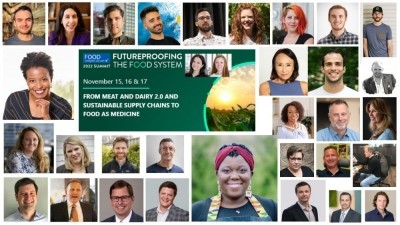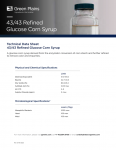Futureproofing The Food System
Is the Western diet slowly killing us? Join us in conversation with Dr. Charles Platkin

“Obesity related conditions, heart disease, stroke, type two diabetes, certain types of cancer – they really are diet related … and they have a lot of impact," said Dr. Charles Platkin, founder and executive director of the Center for Food As Medicine and a distinguished lecturer at Hunger College NYC Food Policy Center.
"One in three adults [in the US] are overweight, more than two in five adults have obesity, about one in 11 adults have severe obesity,” and this likely will get worse before it gets better due to lifestyle and dietary changes made by many Americans during the pandemic.
He explained during FoodNavigator-USA’s recent Futureproofing the Food System digital summit, which is now available for free on demand if you register here, that many Americans became more sedentary after adopting a work-from-home or hybrid work schedule during and after the pandemic.
But many did not change their diet accordingly – rather they continue to graze on the convenient and processed or ultra-processed foods that they relied on when they had fast-paced on-the-go lifestyles pre-pandemic.
At the same time during the pandemic, Americans became more aware of how diet impacts their health and many started looking for products that could boost their immunity or support their wellness – prompting a flurry of marketing efforts by the food industry that Platkin and his colleagues argue may do more harm than good in the study Food As Medicine: How Food and Diet Impact the Treatment of Disease and Disease Management, published by the Center For Food As Medicine and Hunter College New York City Food Policy Center.
In the paper, Platkin and other argue that many front-of-pack food claims and descriptive key words and phrases – while legal – “obfuscate the impact of food on disease.”
The authors explain, “these claims influence consumer decision making for both consumers with high nutritional knowledge and health motivation and those without. Consumer understanding of these types of claims is relevant to food as medicine because it sheds light on some of the most accessible health and nutrition information consumers receive: marketing.
“Furthermore, FDA-approved health claims in particular demonstrate what the average consumer is likely to believe about the relationship between diet and disease, because these claims are so pervasive in everyday life.”
At the same time, these claims are so heavily qualified that consumers are “left not knowing what to believe about how their diet will affect their health,” Platkin and the other authors argue.
With this in mind, Platkin urged attendees at FoodNavigator-USA’s digital summit not to take advantage of the “insecurity and … vulnerability” of consumers who are looking for disease treatment or wellness management solutions from food by using confusing or insufficiently supported claims.
Rather, he said, “there’s an opportunity there to be transparent, to really study the research, really look at how you can incorporate whole foods and have that treatment option … that has been supported by multiple studies, and then try to come up with a product that can feed potentially into that space.”
This does not mean adding supplements to foods based on one or two studies and then calling the products better-for-you, which can be “triggering,” he added.
Rather, he advocated for food manufacturers to invest in farms and their supply chains, potentially adopting a more vertically integrated approach, to ensure the ingredients they use are wholesome and that there is a steady market demand for healthy ingredients and foods to encourage additional production.
This strategy also could help bring consumers closer to how food is produced, processed and developed so that they can cultivate a deeper understanding of nutrition, Platkin said.
Should industry have a role in developing dietary guidelines?
Platkin also urged food policymakers to rethink how influential guidance, such as the Dietary Guidelines for Americans, are drafted and promoted.
Specifically, he urged the government and public health advocates to be more critical of industry-supported research and advocacy, and he called on industry to step back and let the research and guidance stand on its own.
“Industry doesn’t need to be involved. Let the chips fall where they must. Let it [The Dietary Guidelines for Americans] be real guidelines,” he said. “There is not going to be a huge loss in sales. People are going to eat what they eat, but let [the research and guidelines] occur naturally.”
Doing so, ultimately, will shine a light on new valid opportunities for industry to innovate healthier products, and connect with consumers by building awareness for the nascent food as medicine movement.
Interested in learning more? Register HERE to watch on-demand for free Dr. Platkin discuss whether the Western diet is slowly killing us and how to shift consumption patterns in a direction that is healthier for consumers and the food industry.





















